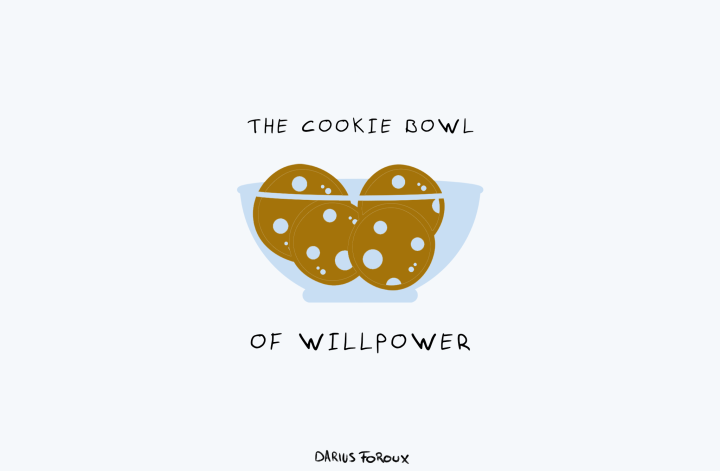Several years ago, I landed on a documentary on TV. I can’t recall much about it, but I remember an important scene.
The documentary was about hidden ailments that people often walk around with for years. The scene I’m referring to featured a man in his sixties, who talked about how he walked around with a violent headache for five or six years.
His wife told him to get checked but he always said, “It’s fine. No one ever died from a headache.” (Depending on the headache, it could be a symptom of serious illnesses). Eventually, the headaches became worse and he gave in to his wife’s advice.
The guy had a brain tumor. “Turns out things weren’t fine at all. I learned my lesson,” he said. And he almost paid the price with his life. In the documentary, they showed how lucky he was to survive.
He had about the same chance of survival as winning the lottery. People who go through an experience like that usually don’t live long enough to talk about it.
Stubbornness and paranoia
I know a lot of people who are stubborn like that. I used to brush off everything like that as well. “Oh, I’m fine!” That’s the favorite saying of a person who’s stubborn when it comes to physical and mental health.
But no one is fine every day of the year for the rest of their life. We all go through mental and physical winters. Sometimes we’re not fine. But a lot of us keep pretending we are.
In his book, Get Out of Your Own Way, the psychiatrist Mark Goulston talks about the counterintuitive nature of acknowledging pain.
He writes, “Admitting to yourself that you are upset or in pain can make you feel exposed. You fear that acknowledging a bad feeling gives it more power. The pain might get worse. You might not be able to tolerate it.”
When you have negative emotions, your first response is usually to downplay them or to run away. But as Goulston argues, “the opposite is usually true: recognizing a feeling releases pent-up tension and makes you feel better rather than worse.”
I think there’s a scale that runs from one extreme, stubbornness, to the other extreme, paranoia. You don’t want to run to the doctor or stay in bed on the slightest ailment. But you also don’t want to pretend nothing is wrong when your headache lasts for years.
Acknowledgment: the first step to being genuinely fine
The next time you have pain or feel bad about something, acknowledge the situation. It’s as simple as saying, “I’ve had a headache for three weeks. I don’t feel okay.”
Or if it’s something emotional, it could be something like, “I feel discouraged at work.”
Put it out in the open. By labeling what you’re going through, you will not only feel better about the situation, you’re more likely to find a solution. The last thing you want is to pretend you’re fine when you’re not.
Some people are absolute masters in that. They convince everyone that everything is fine. But it’s not something to be proud of. It’s a dark art that can have serious negative consequences.
Physical pain can threaten your liveliness. Emotional pain can threaten your lust for life.
So instead of keeping your ailments in the dark, bring them out to the light. They won’t survive for long there.
What I do to stay consistent
Consistency is more important to me than how much progress I make. I’d rather consistently feel good or be in okay shape than occasionally feel amazing. That makes life much more enjoyable for me.
Here are a few things I do to stay consistent.
- When I don’t feel energized, I work less, or not at all: I do better work when I feel good. I can get more done on one good day than on five average days. From an efficiency point of view, it doesn’t make sense to me to work when you’re not feeling good. But I’m not a complainer. If I have a few aches or I’m tired, I work. I’m talking about feeling bad enough that you just can’t think clearly. When that happens, it’s time to take time off. If others don’t respect that, you don’t want to work with them in the first place.
- I don’t put pressure on myself: I set goals, but if things don’t work out, I shrug it off. My favorite phrase in life is “So what?” Didn’t get the house you wanted? So what? Getting older? So what? Your side-project bomb? So what? You’re alive.
- Stick to my most important habits: Meditating, exercising, reading, and sleeping are non-negotiables for me. If I have the opportunity to earn more money but I have to give up any one of those habits, I’ll pass. When I stick to my important habits, I feel much better, so why sacrifice that for anything?
- Never take life too seriously: Humor is really the best remedy for soothing emotional pain. When you feel drained, find ways to laugh. Make fun of yourself, watch stand-up comedy, and meet up with your funny friend. Do something that reminds you of the silliness of life. Everything doesn’t have to be so serious and heavy.
And most importantly, I’ll ask for help when things are not okay. I’d rather put my ego aside early and nip a small problem in the bud so it doesn’t become something huge.
In The Netherlands, we use a platitude for the reverse of that. We say: You’re making an elephant out of a mosquito.
When your challenge is like a mosquito, get rid of it, and you’ll avoid having a problem as big as an elephant.




